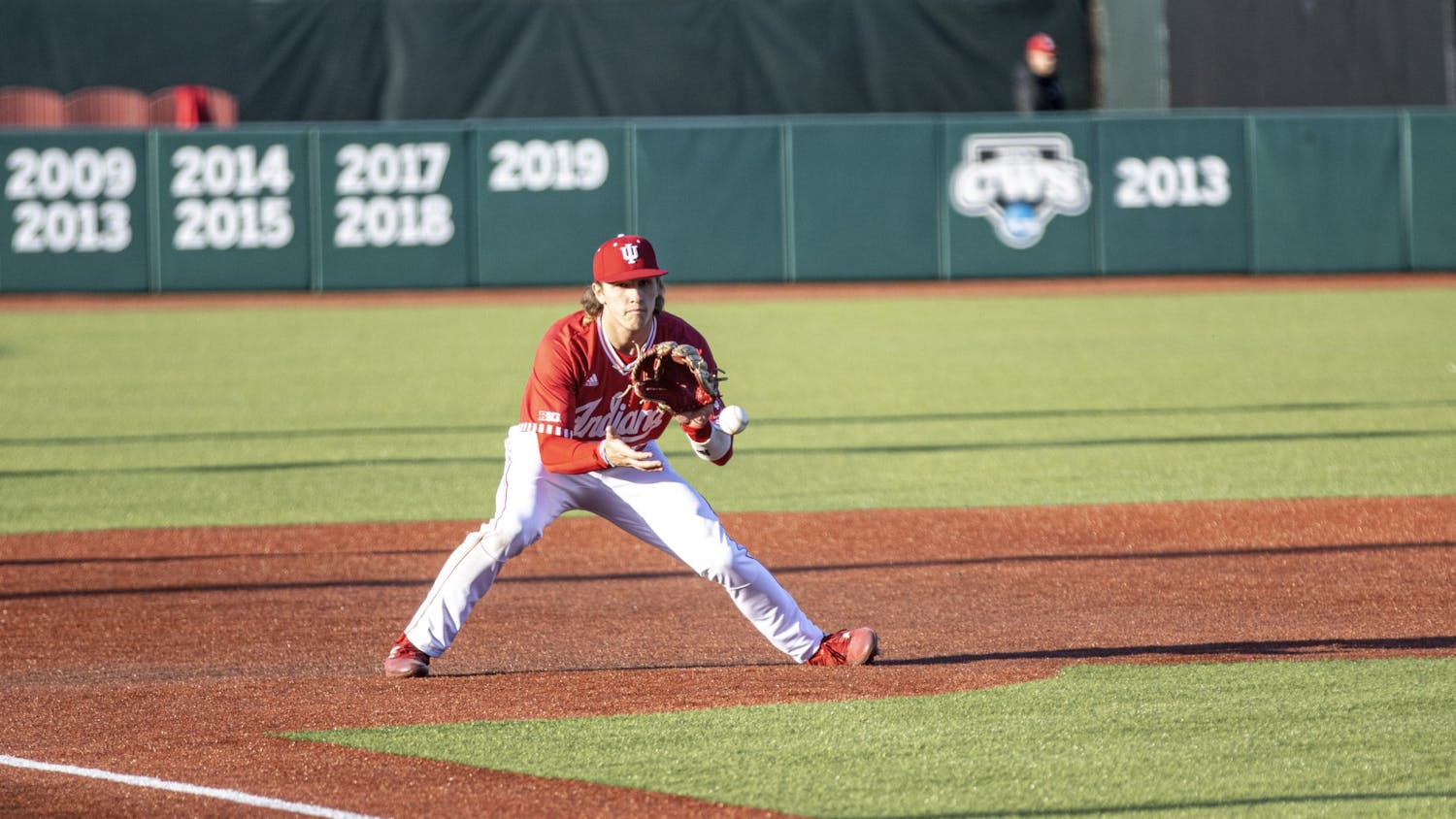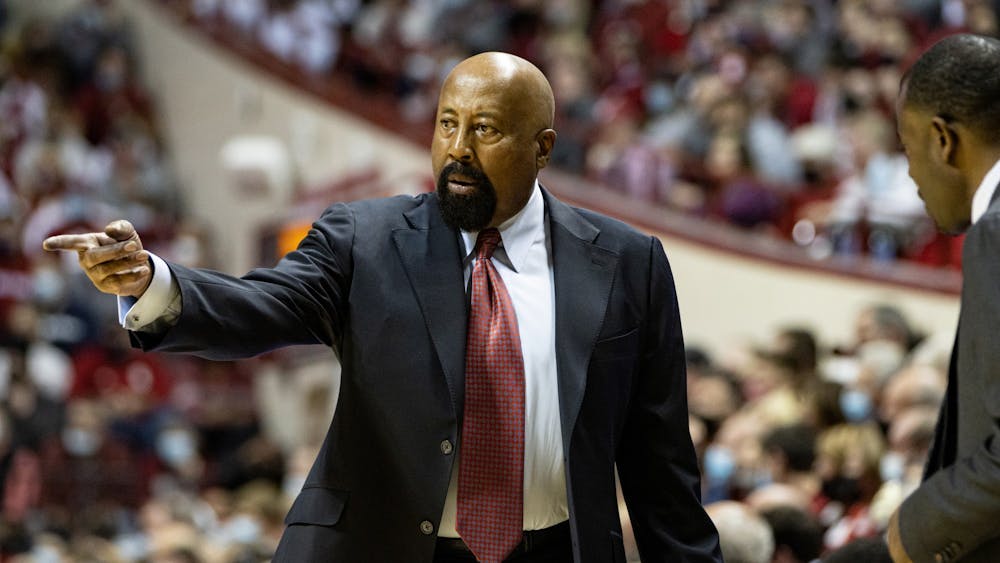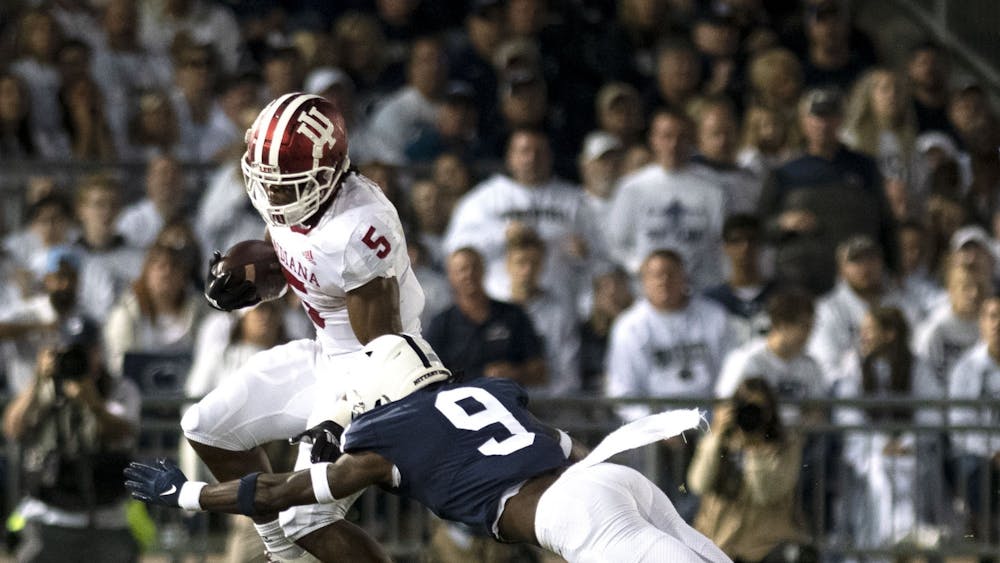In a meeting recently with one of my professors, it slipped out that I was finishing an article on rowing for the Indiana Daily Student. He broadened with curiosity.\n"We have a rowing team?"\n"It's a women's rowing team," I replied.\n"We have a women's rowing team?"\nThe professor, a Buckeye with sporting blood who once a semester dons a tawdry plaid blazer he calls "my Bobby Knight jacket," can name the horses that won at Saratoga in an era before most of his students were born. But few sports enthusiasts know that the tony New York locale, long before my professor came into the world, would draw as many as 30,000 fans who cheered for rowing crews instead of thoroughbreds.\nHolding anything against fans unaware of the oldest American intercollegiate sport (dating back to 1852) is unsportsmanlike. But a little sports iconoclasm at NCAA tourney time makes for good conversation not only here in B-town but in any Big Ten hood where the madding crowd hangs.\nThe madness this month shows more in the gush about "teamwork" than in the bickering about which fab five should get to the Big Dance. Talk of team effort in basketball sounds off key. When an entire squad can rely on the feats of its BMOC, or Big Man on Court, what else is there to conclude about the idea of collaborative exertion along the road to the Final Four.\nTo anyone who fully understands rowing, however, there's no dancing around the truth: Rowing is the definitive team sport.\nNo team has to work precisely together from start to finish as does a crew. Like a machine, rowers' movements must work in complete harmony. This simultaneous, rhythmic exactness distinguishes rowing. If any part breaks down, moreover, the entire crew fails.\n"Eight hearts must beat as one," innovative University of Washington boat builder George Pocock said in his biography by Gordon Newell.\nRowing requires an unusual supply of physical and mental iron will. When her mind wants to drift ashore, an oarswoman can't let it. When her muscles want to rest, she can't allow them. The crew depends on her, unlike in any other sport.\nLong before hoop dreams drove the multitudes to madness, rowing was the country's most popular spectator sport. A college eleven was for many years on the under card to the main event, the rowing race. There was no question about its rank in the pecking-order of sports.\n"But at the head and front of all athletic contests is rowing -- because it hurts the most," Waldron Kintzing Post wrote in "Harvard Stories."\nRower tough is tough enough, but oarswomen won't become million-dollar babies. Rowing lingers in the realm of unsung glory.\n"There are no stars in our sport, so anyone who does this has to want to do it because they love the challenges it presents, not because they are going to get much attention," IU coach Steve Peterson said.\nAmerican college women first feathered oars in 1879, but it was nearly a century later that a legend arrived on the rowing scene.\nA Badger out of the University of Wisconsin boathouse, Carie Graves was the cynosure of women's rowing when she famously led her pioneering American crew to a silver medal in the 1975 World Championships, a story told in Daniel J. Boyne's "The Red Rose Crew." The stroke -- or lead rower -- she was a ferocious competitor who pulled an oar with uncommon obstinacy.\nWhile later preparing for the Montreal Games, Graves describes in her diary a training session in which she was "cranking on it for my life." She recalls thinking, "I am my own God ... and if I died on this next stroke because I burst a blood vessel in my brain or my heart from pulling so hard, I don't care, because this is the ultimate."\nBut hero(ine) worship is not reason rowers take to the water. Nor is it the natural wonder they experience when the sun floats over tree tops at dawn, which can stir Wordsworthian awe or sotto voce prayers of joy and thanks. \nThe essential motivation that gets a rower back in the seat remains all about moving the boat over water. Wrote Pocock in an untitled poem: "And when you're rowing well / Why it's nearing perfection. / And when it's nearing perfection / You're touching the divine." \nFar from the madness in March the grandeur of rowing is.
Rowing's grandeur, far from the madness
Get stories like this in your inbox
Subscribe





